- Home
- Tim Lebbon
Vale of Blood Roses Page 6
Vale of Blood Roses Read online
Page 6
Be safe, he thinks. I’ll come back to find you. Be safe.
At last he turns to look the way they are walking. The woman lets go of his arm but stays close. Puffs of steam vent intermittently from the pipes placed in her shoulders and upper back. She does not blink, and her silvery eyes glint in the sun. But Jakk can see a boil on her chin, scratches on her arm, and close to her left eye there is a moon-shaped scar.
“What are you?” he asks.
“Children of the heart and mind.”
“Is that all you’re going to tell me?”
She looks at him, and for a beat she seems surprised. “That’s all there is to tell.”
She walks on ahead to join her companions, and for an instant he thinks of running. But they will be listening to him, perhaps smelling him. And she has already told him what happened to Rufiere and Leeza.
And what about Barr? he thinks. Since leaving the valley fifteen years before he has not seen or heard from his old fighting companions. They had parted ways upon leaving the valley, Jakk going north into Pengulfin Woods and the others suggesting they would head west towards Noreela City. Barr had been raving, bleeding, weak and close to death. Rufiere and Leeza said they’d try to save him, and when Jazz asked why they could not find a reasonable answer.
He left their company and they left his mind, and apart from the nightmares he has rarely thought about them since. Yet Barr appeared before Jakk with a wound across his stomach and those roses blooming there, seeded by blood from the folded valley. Mad though he was back then it seems unlikely that the mercenary could have fought and escaped from these things.
“Did you send Barr to me?” he asks. The folded people keep walking as though they did not hear, steering awkwardly between the trees. “Hey!” Jakk shouts. Some birds take flight from above and something larger rustles through some undergrowth to his left.
The woman pauses and looks back. Her gaze chills him. She pulls back her sleeve and displays an open wound on her forearm. “He thought he escaped. We knew where he would go.”
“You couldn’t find me yourselves?” he asks. The woman turns and walks on, and there is something methodical and inhuman in her gait. She is simply doing what needs to be done, and her movements lack any hint of impulsiveness or curiosity.
But the pain she feels is obvious.
“We would have,” she says at last. “Given time.”
*
They walk south east through the forest, and Jakk recognises some of the places they pass by. He has hunted far and wide through Pengulfin Woods over the past fifteen years, and it feels more a part of him now than anywhere else on Noreela. The thought of travelling a landscape without trees is repellent and frightening. With so much wide open space, what is there to prevent him from tumbling across the world? At least here the trees keep him rooted. He touches the rough bark of one, the soft ginger trunk of another, and the woman-thing glances back as though she knows everything he does.
They march through the day, and when Jakk says he needs to stop and eat the woman catches a bird mid-flight and throws it back to him. He catches it, finds that it is still alive and drops it at his feet. The twitching, fluttering animal is quickly overrun by crown ants, the tiny creatures going for its eyes and beak and whistling softly as hundreds of them inject venom. The bird dies quickly. Jakk looks up to find the woman waiting for him, her companions moving on ahead.
“Not hungry anymore,” Jakk says. She merely turns and starts walking again.
Jakk follows. They trail the scent of blood roses behind them, and now that smell is personal to him. Romana and Bindy smell like that, he thinks. He wonders what predators the smell could attract, both human and animal. His family calls to him, their hopelessness drawing him back, and the farther he walks the stronger the draw.
But if he runs, perhaps these things of the folded valley will kill him. It is not a chance he can take. Every moment he remains alive could be another beat closer to saving his wife and daughter.
“They’re precious to me,” he says. The woman holds back until she is walking by his side. He realises that he has not heard the other three things speak, and he wonders whether they are able, or whether they simply have nothing to say. “They’re all I have, and you’ve done that to them. Imagine how that makes me feel.”
“You’re appealing to my emotions?” she asks.
“Do you have any?”
“They’re not for the likes of you,” she says, her tone of voice denying the statement. She does not look at him, and he wonders what her metallic eyes look like right now.
“Why haven’t you looked for the valley yourselves?”
“We have. But the heart and mind didn’t make us to return.”
“Then why did it make you?”
“Only revenge.”
“A machine that craves revenge?”
“It’s much more than a machine,” she says, and the statement does not surprise him because he knew it all along.
“And if you return, what will it do to you then?” Jakk is fascinated, both in the way this thing moves and talks, and the reasons it has for being here.
“Perhaps it will welcome us back.”
“To your family?” Jakk asks.
The woman is silent for a long while, the only sound her soft footfalls and an occasional whisper of steam from her pipes. Then she turns to Jakk and he is shocked by the expression on her face. Hatred. “They were precious to me,” she says. “And I was five years old when I saw them slaughtered.”
“Slaughtered?” But he already knows what she means. It was a small village, after all.
“The one you called Barr killed my father. My brother died three days later from his wounds, giving his strength to comfort the injured heart and mind. My mother … you. A knife. Her belly.” She walks on quickly, barges through a thicket of ferns and kicks out at a fallen branch. The wood splinters beneath her foot.
The other folded people do not even glance back.
*
Jakk asks no more. They look like machines clothed in the flesh of humans, yet the woman now acts like a human implanted with the facets of a machine. He does not wish to challenge her identity further, because the more he observes them, the more scared he becomes.
He knows he does not deserve happiness, but with his family taken from him he is craving what is lost.
They walk until sundown. With dusk comes the wildlife of the forest: wood wolves howling at the stars, foxlions slipping from shadow to shadow, and red bears sharpening their claws on the bones of unwary travellers. Normally Jakk and his family would be secure in their home, or if he was on a long hunting trip he would be hidden safely in a tree, but now the folded people keep walking. Jakk hurries to keep up, trying to walk with a couple of them on each side. Either they do not know the dangers or they are not scared.
They do not stop for food or sleep. Jakk is strong and he keeps up, but several times his stomach rumbles noisily, and once or twice his thoughts go back to that bird he gave to the ants.
Their steam pipes sing more often in the darkness. They whistle and hum, and by the time dawn smears the horizon and they emerge from the southern extreme of the Pengulfin Woods, the folded people are walking more awkwardly, no longer possessing even a trace of the grace of machines. The exhaust from the pipes is sometimes a dirty brown colour instead of white or pink. Their eyes are dulled and tarnished.
“You seem tired,” Jakk says.
The woman shakes her head. None of them have spoken for a long time, and she seems unwilling to break her silence.
She reaches into a pocket in her long coat, brings something out and throws it at Jakk. He recognises it instantly. It is Rufiere’s leather-bound book, the volume he always claimed to be a Book of Ways. He glances at the woman, then opens the book and flips through the thick silk-grass pages. They are tattered along their edges, faded with time, and the top corner of each page is stained with blood.
“He tried to show,” she says. Her voice sound
s different, and Jakk realises there is a very human weakness to it now. “But we’ve followed, and he showed wrong.”
Jakk turns page after page. He has never travelled far, and he does not known whether the maps and comments are accurate or fanciful. But when he finds a page scored deep with a fresh dark line of charcoal he stops. On the bottom of the map, to the south, are the northern borders of the Ventgorian Steam Plains. At the top, marked with a score of tiny trees, lies the southern edge of the Pengulfin Woods. In between Rufiere has marked the folded valley with a thick finger-shaped line. He has gone over it again and again to make it never disappears.
Jakk looks up. “We’re not there yet,” he says.
“You know where he was wrong?” the woman asks.
“Of course,” Jakk says. No, he thinks. I haven’t a fucking clue. I was a mercenary, not a map maker.
“Show us.”
He steps forward with the book held out, finger pointing to some arbitrary area east of where Rufiere tried to score the valley into existence.
“No,” the woman says. “Show us.”
Jakk nods and starts walking, and this time it is they who follow him.
*
He hears them talking. The woman first, her voice low and slow, and then the others join in. He cannot hear the words, but as the day wears on and they draw closer to where the valley almost certainly will not be, Jakk knows that they are becoming desperate.
I should go, he thinks. He has looked behind several times now, and every time he turns around they seem less organised and weaker. The only time one of them raises a voice it is the woman, responding to some muttered entreaty.
“No more!” she says. “We’re going back.”
But they are not going back. Because the valley is closed to them, and the heart and mind sent them out for vengeance, and vengeance only. And if Jakk knows and understands that, he wonders why they cannot.
*
They stop beside a huge old machine, a metallic construct that still has the
leathery remnants of its biological parts flapping in the breeze, hardened through its core and stretched impossibly thin across rusted domes. The folded people stare at it for a long time, their steam vents hissing, and when they finally sit down and lean against it they seem to forget that Jakk is even there. He waits for a while, standing still as a stone while the things converse in pained whispers, then he turns and walks away. If they are readying to kill him now is the time. It must surely be obvious to them that their creator is not about to welcome them back.
So he will die or escape, and he has little control over what will be. Weaker though they seem, he cannot fight them. He can’t find the folded valley that is no longer there. The further they walked, the more he thought about Rufiere’s solid black line, and how the dead mercenary would have been very particular and exact about where he drew it.
The folded people do not follow. He does not believe that they let him go, but abandoned by their maker they have simply stopped caring. And even after what they did to his family, Jakk can’t help but wonder what will become of them. They could remain here and rot against the old dead machine, or perhaps they will rise again and continue looking, catching the occasional unwary traveller to seed with their blood roses so that they can draw power from the living again. Maybe they will never die.
Perhaps one day the folded valley will open to them again.
He will never know.
*
He has to eat. Lacking any weapons, unsure of whether there are any farms or villages close by, he sets about making a snare. He peels bark into thin strips, ties the lengths into a rope, bends and secures a sapling, positions the loop and retreats behind a small clump of trees to await his prey. And every beat he spends waiting to catch his food, he thinks of Romana and Bindy. What they mean to him, how they look, how they smell, the lengths he would go to protect them, and what he would do if anything ever happened to them. He has seen and caused so much death in his life that, selfishly, he hopes that of the three of them he will die first. He knows that will leave them to suffer and grieve, but now that he has such goodness in his life he knows that losing it would kill him.
A rabbit trips the snare, and soon he is cooking it over a roaring fire.
The smell attracts a small group of skull ravens. They roost on a tree a hundred steps from where he eats, and he throws stones at them as he chews on the rabbit’s leg. They do not fly away, and he remembers the last time he threw stones at such birds. Then, he was interrupted by the smell of blood roses drifting on the breeze. Now there is nothing but the odour of cooking meat. He moves upwind from the fire and breathes in again, but the rabbit grease is on his breath.
He moves on, leaving the remains of the rabbit and the skull ravens behind. The birds ignore the meat and watch him go.
*
Jakk reaches the forest, passes through and steers unerringly to where they stole him away from his family. He smells the blood roses from a distance, that meaty scent inspiring a hundred bad memories. My mother … you. A knife. Her belly. The folded woman’s words come back to him, but try as he might he cannot remember the killing she described. There were so many in the valley that they all blurred into one.
“I’m sorry,” he says to the breeze as he starts to run. The smell grows stronger. He is going the right way, because he knows these woods as well as his wife’s smile and his daughter’s laughter.
His apology serves no purpose, and he’s not entirely sure he means it.
He sees a flash of red in the distance and stops. What if they’re dead? He cannot allow that thought. Not here, not this close. He starts running again, faster than he has run for a long time, and soon the spread of blood roses appears before him.
This is the place. He recognises the lightning-struck wellburr tree to his left, the small rocky outcropping from the hillside to his right, the way the trees are spaced, the afternoon light splaying shadows across the ground, but Bindy and Romana are not here.
They are not here.
He walks slowly through the roses until he reaches the place where he remembers his wife lying. And Romana was over there to his left …
They are not here.
This is where the roses grow thickest, where his wife and daughter should be. There are two dense groupings of the plants, the odour rich, the sap dripping with a sound that seems to reverberate through the forest. As he steps back, he sees the distinct shapes these clumps of roses form. And he understand that his family are still here.
*
He sits with his back against a tree and cries.
“Maybe they’ll come back,” he says. The words have no power, and neither do his tears, but he cannot stop talking to himself and crying.
The sun goes down and Jakk still cannot move. He stays there and listens to the furtive night sounds of the forest. And as he breathes in the heavy, heady scent of the folded valley, he knows what is to come.
Keep reading for an excerpt from Tim’s latest gripping novel, THE NATURE OF BALANCE.
If you enjoyed Vale of Blood Roses, we would be really grateful if you could leave a review on the Amazon page and Goodreads.
You might also be interested in RIME:
For weekly updates on our free and discounted eBooks sign up to our newsletter.
Follow us on Twitter and Facebook.
The Nature of Balance
1. The Little Dead Girl
The dead girl holds her mother’s hand.
She does not seem dead. In fact, she is the very image of a pretty, lively child, all sun-tanned limbs, glinting eyes and knees grazed by adventure. Even her hair appears drunk on her life force, swaying where there is no breeze and bouncing with each step.
But the girl is dead, existing only in this strange place, unmissed and forgotten elsewhere. And although her mother clasps her hand tightly, and their palms are fused by sweat, there is no real connection.
The road is cut into a mountainside. To their right, tr
ees cling tenaciously to the edge of an almost vertical drop, roots shrivelling where earth has fallen away into the valley below. They are evergreens, but mostly brown. The road is dusty from lack of use, any line markings long since scoured into veinous patterns by the abrasive wind. Their footsteps thump into silence.
The dead girl feels safe. There is nothing here to harm her. The road behind them is empty, while ahead there is only a virgin surface ready for them to disturb.
But there is something wrong with the trees. Those at the road-side are slanted slightly towards the valley, evidence of the land’s insidious downward movement, but they are also twisted into other, less logical shapes. They seem to turn away from the sun, seeking darkness rather than light to provide their sustenance.
The dead girl knows that this is very wrong.
Her mother increases their pace and the girl looks up, but the sun is glaring down into her eyes and she can see only a haze where her mother’s face should be. She glances down and sees that they are no longer leaving tracks in the dust. With startling clarity, the little dead girl realises that all the trees are now leaning in towards her. Following her along the road, like the eyes of a sickly portrait.
Something drifts above the path. It is a huge bird, wingspan that of a heron, but its beak and feathers scream carrion. It settles into a nest made of stained white bones, jerking its head as it regurgitates its own insides to feed its slovenly brood. As they pass by the great bird turns its head and stares at her. Then one of the fledglings pecks out its mother’s glazed eye, and it stares no more.
Mummy, the dead girl wants to say, but she cannot speak. The heat has melted her voice. She tries to scream, but there is no pressure in her throat, no movement in her chest. She is afraid and recognises that she always has been. There has been something constantly there, lurking just beyond her perception, like a vulture awaiting her demise.
The little dead girl finds that she is no longer holding her mother’s hand.

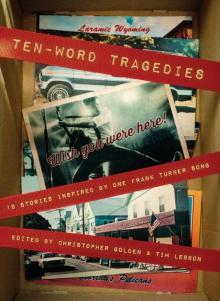 Ten-Word Tragedies
Ten-Word Tragedies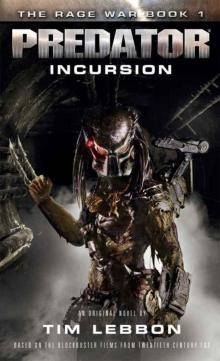 Predator: Incursion
Predator: Incursion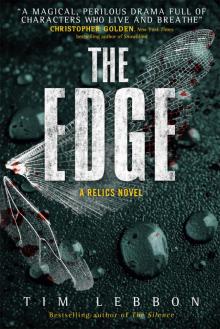 Relics--The Edge
Relics--The Edge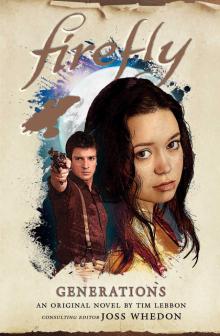 Firefly
Firefly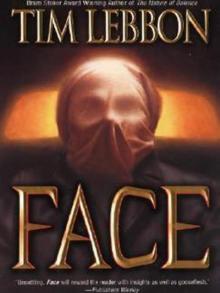 Face
Face Generations
Generations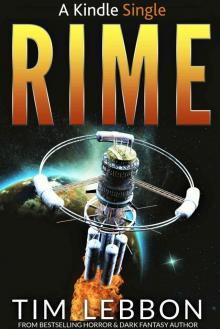 RIME (Kindle Single)
RIME (Kindle Single) Fallen
Fallen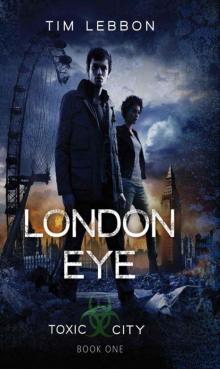 London Eye tc-1
London Eye tc-1 Kong: Skull Island
Kong: Skull Island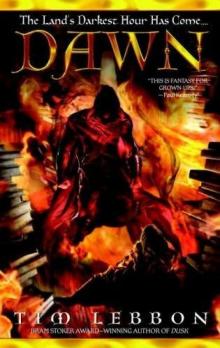 Dawn n-2
Dawn n-2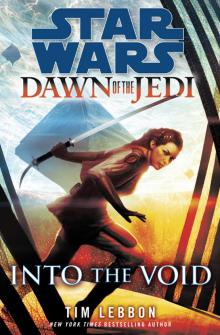 Into the Void: Star Wars (Dawn of the Jedi)
Into the Void: Star Wars (Dawn of the Jedi)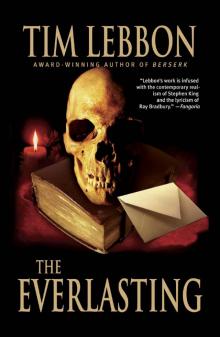 The Everlasting
The Everlasting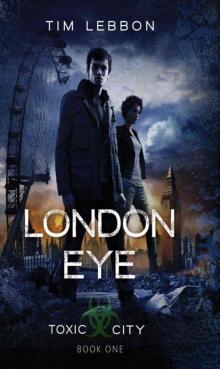 London Eye: 1 (Toxic City)
London Eye: 1 (Toxic City)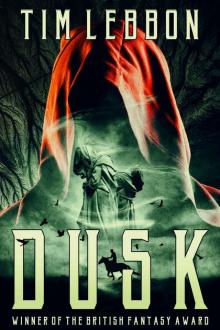 Dusk: a dark fantasy novel (A Noreela novel)
Dusk: a dark fantasy novel (A Noreela novel)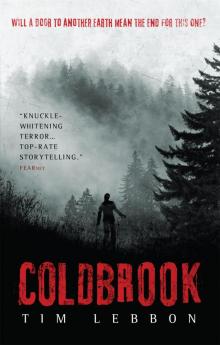 Coldbrook
Coldbrook Alien
Alien Dusk
Dusk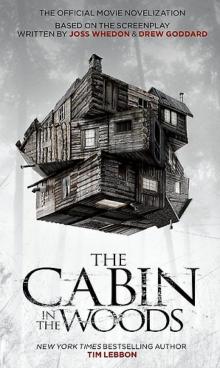 The Cabin in the Woods
The Cabin in the Woods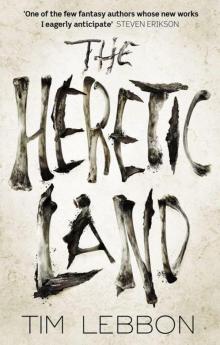 The Heretic Land
The Heretic Land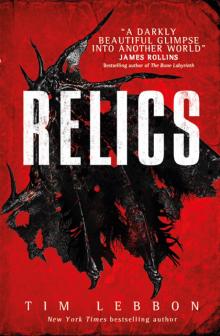 Relics
Relics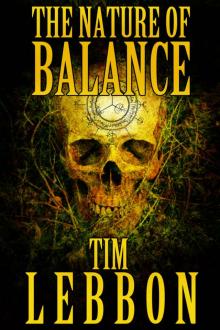 The Nature of Balance
The Nature of Balance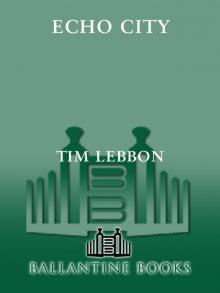 Echo City
Echo City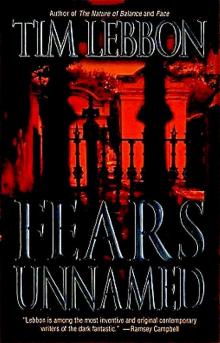 Tim Lebbon - Fears Unnamed
Tim Lebbon - Fears Unnamed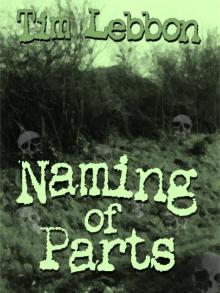 Naming of Parts
Naming of Parts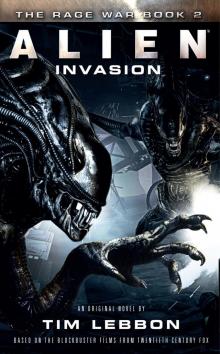 Alien--Invasion
Alien--Invasion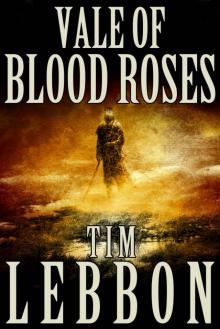 Vale of Blood Roses
Vale of Blood Roses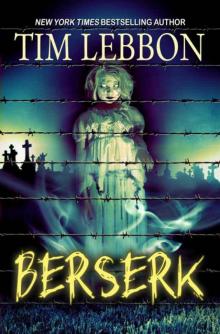 Berserk
Berserk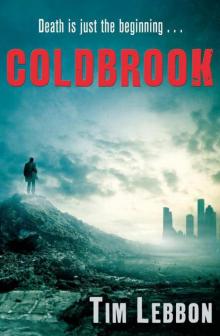 Coldbrook (Hammer)
Coldbrook (Hammer)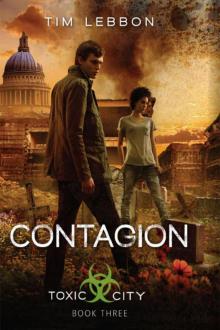 Contagion tc-3
Contagion tc-3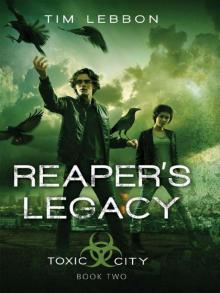 Reaper's Legacy: Book Two (Toxic City)
Reaper's Legacy: Book Two (Toxic City)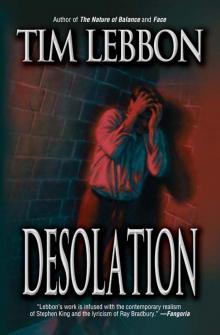 Desolation
Desolation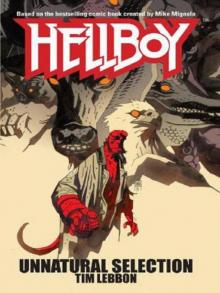 Unnatural Selection
Unnatural Selection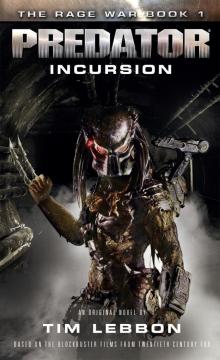 Predator - Incursion
Predator - Incursion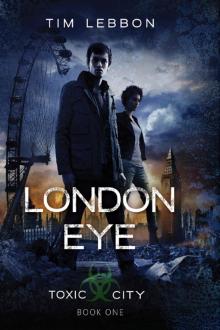 London Eye
London Eye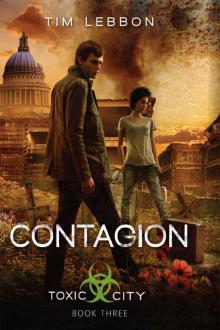 Contagion (Toxic City Book Three)
Contagion (Toxic City Book Three) The Silence
The Silence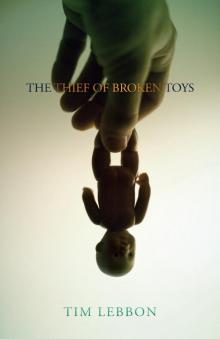 The Thief of Broken Toys
The Thief of Broken Toys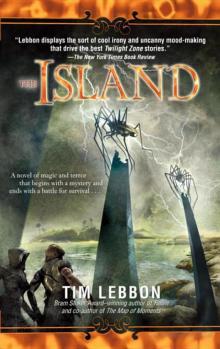 Tales of Noreela 04: The Island
Tales of Noreela 04: The Island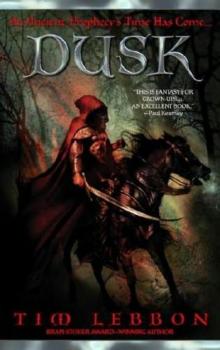 Dusk n-1
Dusk n-1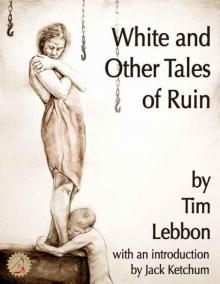 White and Other Tales of Ruin
White and Other Tales of Ruin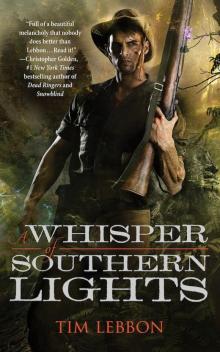 A Whisper of Southern Lights
A Whisper of Southern Lights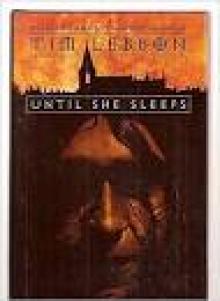 Until She Sleeps
Until She Sleeps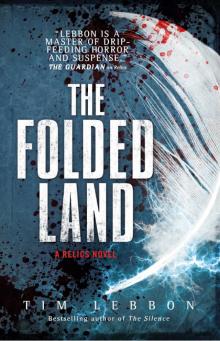 Relics--The Folded Land
Relics--The Folded Land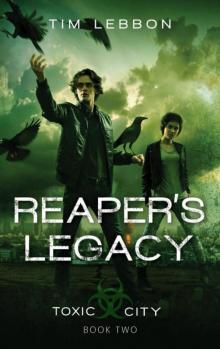 Reaper's Legacy tc-2
Reaper's Legacy tc-2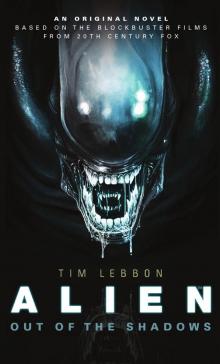 Alien: Out of the Shadows
Alien: Out of the Shadows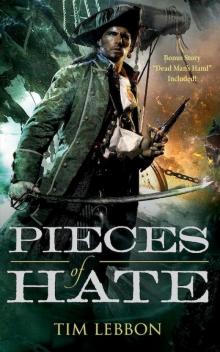 Pieces of Hate
Pieces of Hate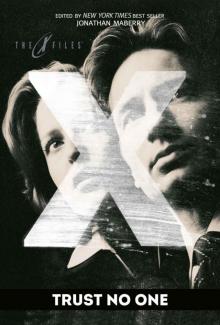 X-Files: Trust No One
X-Files: Trust No One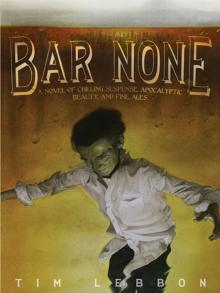 Bar None
Bar None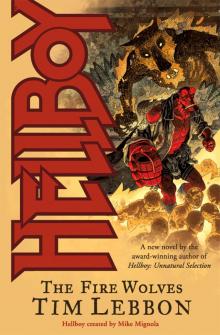 The Fire Wolves
The Fire Wolves